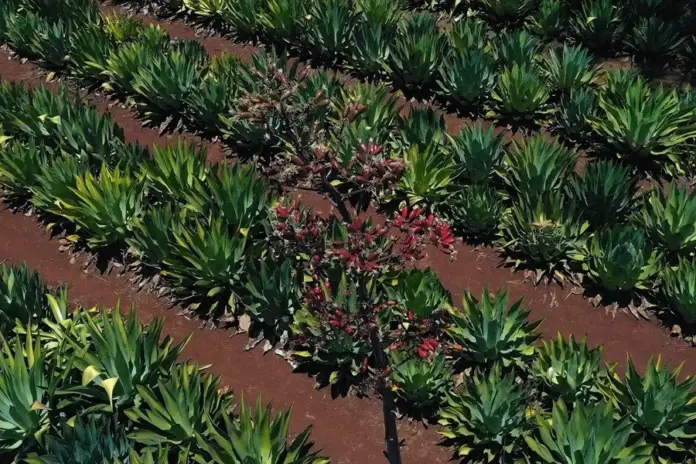
“I would love to say that they do have a plan. I just met with them two months ago again and told them again (about the importance of pollination) and they told me again that it is wonderful, but they do not offer support,” she said.
The cost per kilo of agave went from 30 pesos to 2 pesos in three years, a decrease that is related to the increase in tequila production and agave plantations in the five states that have the ‘designation of origin’ of tequila, even in areas where there were previously corn or bean fields.
Bat, the best ally
Marisol Tiburcio, a student at the UNAM Institute of Ecology who is conducting research on bats, explained that, although bees and hummingbirds can transport pollen, the bat is the true ally of agave because of its pollination capacity.
“When it comes to feeding, it extracts nectar with its tongue, but at the same time its entire body is covered in pollen, and when it goes to visit another flower, that pollen reaches the flower and stirs up its interior so that another flower can reproduce and from there extract a new seed. All of this is only possible at night, something that other species do not do,” she explained.
Winifred Frick, a researcher with the organization Bat Conservation International, stated that bats interact with species from other areas of Mexico and the United States and can move more than 200 kilometers in one night.
That is, they can go from Jalisco to Sinaloa or Baja California or the United States and exchange pollen between plants of any latitude, a positive aspect that encourages pollination and diversity in the genetics of agaves, cacti, cardons and other plants.
‘Bat Friendly’
The specialists recommended that the tequila industry and producers of other types of agaves promote initiatives to favor the flowering and pollination of at least 5% of the plants that are going to be planted to prevent them from losing all their crops in the future due to a pest or disease caused by fungus.
The researcher of the Bat Conservation International organization, Winifred Frick, poses during an interview with EFE on October 25, 2024, in the city of Guadalajara in Jalisco.
So far, a dozen tequila brands in the designation of origin area have adopted this practice and are considered ‘Bat friendly’, a process endorsed by a group of scientists to ensure natural processes and traceability.
“If they commit to 5% (of the crop), we put in place the monitoring networks and verify that the bats are visiting,” she said.
The certificate is awarded by the Tequila Interchange Project in conjunction with the National Autonomous University of Mexico (UNAM) and producers can add a label stating that they are ‘Bat friendly’ and then “it is up to the consumer to decide” which tequila to choose, he concluded.
Source: efe






